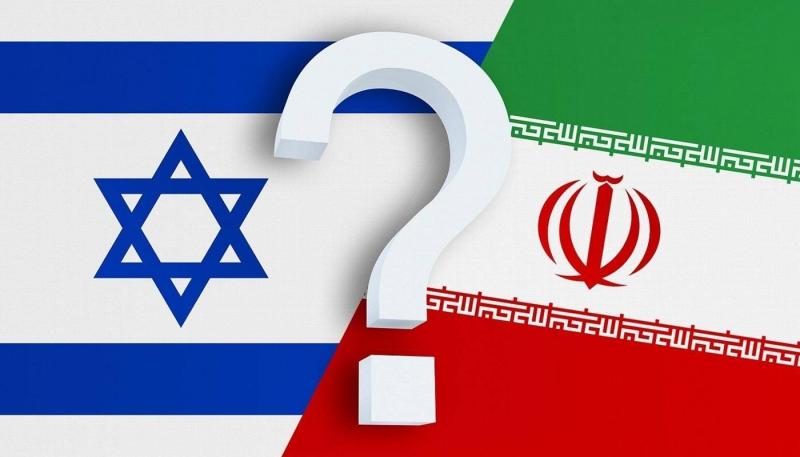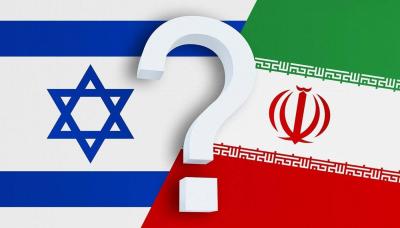Israel attempted to send several messages through its attributed attack on the city of Isfahan in central Iran, which was a response to an Iranian drone and missile attack targeting Israel the previous Saturday. Analysts viewed it more as an informal agreement between the two sides to "avoid escalation" and not enter into an open war. Official Israeli statements regarding the attack were absent; however, Israeli media reported foreign reports about the strike on Iran, while Tehran downplayed the importance of the attack.
The first official Iranian comment on the "Israeli attack" came from Foreign Minister Amir Abdullahian, who stated that small drones did not cause financial or human losses in Isfahan, despite efforts by pro-Israel media to portray the defeat as a victory. Abdullahian mentioned that the drones, which sources claim Israel launched at Isfahan on Friday, did not result in material or human damage. An anonymous Iranian official stated that authorities "have not confirmed that there is an external source behind the incident," adding, "We have not faced any external attack, and the discussion leans more towards infiltration rather than an attack."
On the other hand, Israeli media cited reports from The New York Times and The Washington Post, which confirmed by unnamed Israeli officials that Israel was behind the attack, though no official confirmation was published. American officials and local Israeli media attributed the explosions that occurred in Isfahan early Friday to Israel.
While Iranian authorities attempted to promote the narrative that the explosions early Friday in Isfahan were a result of Iranian air defenses shooting down three drones over the city, indicating an attack by "infiltrators," the facts on the ground suggest otherwise, indicating that the attack came from outside. Regardless of whether Israel will officially acknowledge it conducted the attack, analysts believe it aimed to send multiple messages through the nature of the strike and its location.
Isfahan is home to a facility containing three small research reactors provided by China, in addition to fuel production and other activities related to Iran's civilian nuclear program. Michael Pregent, a researcher in security and terrorism at the Hudson Institute, believes that "Israel carried out a carefully planned strike on the most protected and sensitive Iranian sites in Isfahan." Pregent told Al-Hurra that "the Israeli message to Tehran is that we are capable of striking anywhere in Iran, and Iran can do nothing about it." He likened the incident to "someone breaking into your home and taking a picture of you while you sleep in your room."
He noted that "what could irritate Tehran the most is that Israel wanted to convey that this is what we can do at most sensitive sites," adding that the strike "re-established the rules of deterrence between the two countries." The strike did not cause any significant damage, and the calm manner in which both countries handled reports regarding the attack indicates their intention to avoid escalation, at least for the time being.
U.S. media reported that American officials stated the explosions that occurred Friday near a military base in Qahjavand, located between Isfahan and its airport in central Iran, were linked to an Israeli attack against Iran in response to the Iranian strike on Israeli territory last weekend. Meanwhile, Tehran seemed inclined to de-escalate the situation, as it referred to the attack without mentioning missiles and clarified that the nuclear facilities are safe.
Security and strategic expert Mohamed Abdul Wahid explained that "the strike undoubtedly indicates that Israel carried it out symbolically and in a limited manner away from large population gatherings and strategic sites to avoid provoking Iran." Abdul Wahid adds that "both parties have the desire not to escalate and to remain content with indirect shadow warfare." He explains that "the Israeli message was clear: they can reach deep into Iran and place the nuclear reactors in Isfahan within the crosshairs of their aircraft." He believes that "the strike did not exceed the boundaries of the game between Israel and Iran, and Israel attempted to convey that if there are new rules of engagement, we will set them, not Tehran."
Abdul Wahid also pointed out that "Israel wants to convey that its drones, planes, weapons, and agents are capable of reaching deep into Iran and the nuclear reactors, and what happened early Friday is a demonstration or proof of that." "In conclusion, this Israeli threatening message should be taken seriously, because Israel threatens and acts, unlike Iran, which threatens but does nothing," according to Abdul Wahid.
Michael Horowitz, an analyst at the "Lo Peque" consulting firm for geopolitical risks, remarked that "this is a calculated response aimed at demonstrating Israel's capability to strike Iranian territory without provoking any escalation." Julien Barnes-Dacey from the European Council on Foreign Relations stated, "It seems that we are in a time when both sides are seeking to exit the current cycle of escalation, as Israel conducted a very limited attack to demonstrate a response to Iranian strikes, while Tehran quickly downplayed the significance of the incident to avoid having to respond to it."
Hossni Abidi from the Center for Studies and Research on the Arab and Mediterranean World based in Geneva noted a "near equivalence" between the Iranian and Israeli attacks, which may lead both sides to consider leaving things at this level. He stated that "the Israeli strike targeted an airbase that served as a platform for launching missiles and drones at Israel" last week, adding that "the Israelis were keen not to touch important nuclear sites in the same province, namely Isfahan."
Isfahan in the Crosshairs
The city of Isfahan in Iran made headlines early Friday following reports of an alleged Israeli strike, after explosions were reported in the city located in the center of the country. This situation may satisfy Tehran, which "has no interest in continuing this tension," as its "top priority" is continuing its nuclear program, which is seen as a guarantee for the regime's survival, according to this Middle East expert.
This attack was the latest reciprocal strike following the killing of seven Iranian officers in an attack on the Iranian embassy complex in Damascus earlier this month, raising fears of the Gaza conflict evolving into a wider regional conflict. Although Israel has never officially confirmed it was behind the attack that occurred on April 1, Iran launched a torrent of hundreds of drones and missiles in response to the attack on Saturday, which were successfully intercepted by the air defenses of Israel and its allies.




